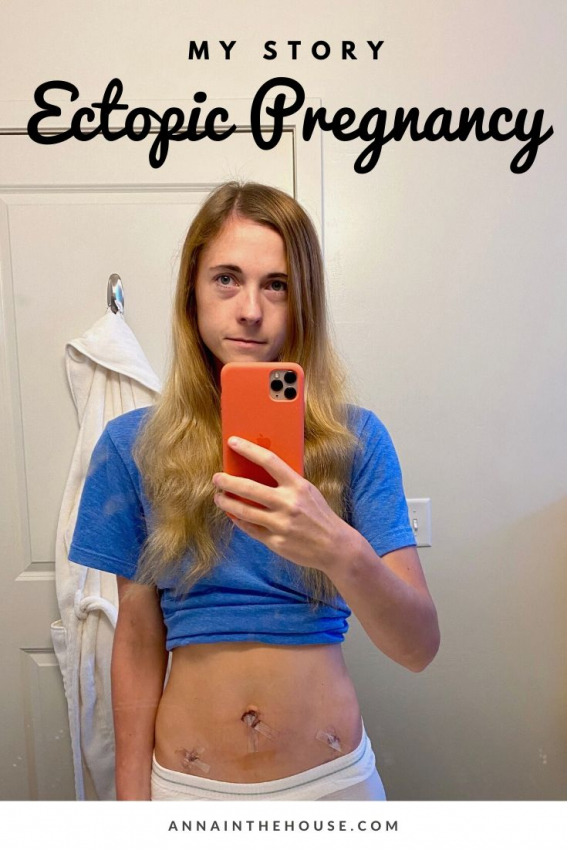This isn’t a story I normally share on either of my blogs. While I’ve talked about medical issues before, I always felt like everyone expected me to keep certain things private. Yet, after sharing my story with a few close friends, I realized that some people may find what I’m about to share interesting or helpful.
This is why I decided to share my full story, not for pity or attention, but to bring awareness to these issues. Who knows, it might even save someone’s life one day…
My First Pregnancy Was a Piece of Cake
It’s no secret that I was incredibly lucky regarding my first pregnancy with baby Dylan. Truth to be told, I couldn’t even believe it myself. Lots of my friends have been trying for a baby for a very long time and many experienced a miscarriage before they actually succeeded. Even in our family we’ve had a fair amount of horror stories with pregnancies and delivery.
But this wasn’t my experience. We decided we wanted a baby and 2 weeks later there was a positive pregnancy test. Easy! Not only that, I had a very uneventful pregnancy, with my only problem being pregnancy rhinitis which combined with my deviated septum was a bit of a nightmare.
No vomiting, no unbearable pains, nada. Just a little anemia at the very end, but that’s expected in most pregnancies. I was even still hiking and skiing (carefully) in my third trimester.
Then Dylan was born in April, via C-section to be fair, but since it was pre-planned it went great. C-section to me was something people scare you about, but the recovery was surprisingly smooth. I was sitting and walking the next day and barely even have a scar.
We flew home to Italy 2 weeks after birth and traveled with our new baby quite often. Dylan was a healthy and easygoing baby. I’ve had no issues and no baby blues as I kept myself busy – life was good.
The weirdest thing that happened was just one month later I pretty much weighed the same as before pregnancy, but as I didn’t exercise (I wasn’t cleared for aerial acrobatics a month after the c-section). Two months later I was way below my pre-pregnancy weight, but I thought it was just due to being tired and busy…
Not surprisingly, I started thinking of having a second baby earlier than expected. As an only child, for me it was always either zero or more than one kid and I was always open about it in front of my friends. Four months after Dylan was born I felt ready again, and while there were some risks involved with potential tearing, I was told that medically I could start planning for another.

Secondary Infertility Isn’t So Uncommon
I knew that as I was lucky the first time, the second time probably won’t be so easy.
There’s a common belief that the second baby is easier to conceive. People love to repeat stories of their neighbor who accidentally made a baby right after giving birth and keep repeating this myth to one another. From a medical standpoint, it’s not very true. Everyone is different.
Some people take months or years for the first baby just to conceive a second on a whim. But, many struggle with the second baby despite not having any issues with the first one. (Don’t believe me? Google “is second baby easier to conceive” and you’ll see many stories).
I didn’t know myself how common the secondary infertility is before it happened to me… In fact, medical statistics say it affects 30% of women.
Our second attempt ended up in an early loss. While it sucked, I blamed it on the possibility of my body not having a chance to recover completely. Although when it happened again 3 months later I began to suspect that something might actually be wrong with me.
Many people might think that it must be easier when it’s your second baby, because obviously – you already have one. I find it quite the opposite. When it’s just you and your partner you can take a few days off, grieve if you need to, stay in bed if feeling a bit depressed. The thing is, when you already have a busy toddler around to take care of, you just have to keep going.
I was losing an awful amount of hair as well, way more than I should and especially not 9 months postpartum already and I felt awful, but again, I blamed in on the overall frustration and being overwhelmed with moving, starting school and our baby turning into a toddler.
Naturally, when I shared my story with any close friend I kept hearing the same things:
“just be patient, it might be too early”
“but it took us a year to conceive our daughter and it hasn’t been that long”
“maybe you should stop trying so then it will happen” (worst advice ever btw)
“why do I want another baby so soon”
“don’t worry you already have one baby”
After we finally got new health insurance back in the US, despite all my friends thinking I must be impatient and/or batshit crazy, I asked my GP to direct me to the fertility clinic. While he also said that at my age they don’t tend to do this until much longer trying, I got an appointment.
Thankfully, the doctor at the fertility clinic turned out to be patient and understanding. After a quick talk that I should know that it might take a while to conceive a second baby when I kept insisting that I have a feeling something is wrong we decided it’s good to do some basic tests to check if everything is all right. Even if it was just for my own peace of mind.
Postpartum Thyroiditis Diagnosis
A few blood tests later it turned out that I was actually right. Something was very wrong with me, as my tests were coming back all screwed up like never before. I was coming back to the lab every week for more tests, more ultrasounds, and more appointments until we finally had a diagnosis: postpartum thyroiditis.
Postpartum thyroiditis is an uncommon condition that affects 5% of women, but many either don’t know about it at all or find out months or years later. It’s when a normally functioning thyroid becomes inflamed after giving birth and antithyroid antibodies are attacking the thyroid.
It can last a few weeks, many months, or it can actually stick around forever. In my case, as it’s been so long already there’s a high chance that it might actually not resolve itself on its own.
I heard about this condition before, as actually it happened to my good friend after an uneventful first pregnancy. It causes extreme hair loss, anxiety, depression, tiredness. In bad cases it can also lead to miscarriages as I experienced first-hand.
The doctor gave me drugs to regulate the thyroid and after making sure that everything else is functioning correctly he said I was good to go and wished me good luck now that my thyroid is being controlled.

How I Ended Up At the ER…
In February I left for a solo trip for 2 weeks. Changing time zones, traveling long distances and flying can screw up with your body. Hence why when I got my period 3 days before an expected date I didn’t think much about it.
I just assumed that we were unsuccessful again and that I wasn’t pregnant. After months of doing pregnancy tests like a crazy person I decided that unless I miss a period there’s simply no point.
My trips were going well, but imagine my surprise when a few days later I basically got a “second period”. I was convinced I was having another miscarriage. I even texted my husband and told my travel companion that despite feeling awfully tired I think I was fine, as it’s just become a regular occurrence to me at this point. Not that anything could be done in a remote destination like Socotra Island anyway.
When the trip ended and I flew back home on a Thursday I was still spotting, wondering how long will this going to take this time. When my fancy app showed fertile days I did something called an LH surge test. Only to discover that I’ve never seen a result that high before.
I’m not sure why but after my strange LH test I decided to take a regular pregnancy test which turned out to be positive. I could already barely walk on Friday and Saturday I felt like I was about to die.
I was nauseous, in pain, couldn’t sleep or even stand up at times.
Having enough medical knowledge I knew there were three options, even though my OBGYN friend whom I consulted only told me about the two first ones. I was either actually pregnant and this bleeding was just random, it was a very bad miscarriage, or a dreaded ectopic pregnancy.
We eventually drove to the ER on Sunday because I felt so bad and waiting for my doctor to have an appointment wasn’t an option anymore. While naturally there was still some hope, I guess I sort of knew that I couldn’t be normally pregnant as I was passing blood clots. Plus after my previous losses my tests were never coming back positive.
But… I was just looking for some answers. Anything at that point. Was I miscarrying? What exactly was going on here?! On the back of my head though I already knew that it might be an ectopic pregnancy.

Ectopic Pregnancy
Doctors at the ER first tried to find an embryo in my uterus which was nowhere to be found. They said it could be too early, but having had an ultrasound at 6 weeks with Dylan I knew that it could have been found if it was there.
Then they took me to another radiologist who kept talking and joking with me and then suddenly she became quiet and (literally!) ran away saying she’s going to ask the doctor to talk me to. She left the monitor on though, so I was able to read on the scan that there was an embryo.
Things shortly got confirmed: it was indeed an ectopic pregnancy. In a healthy pregnancy, an egg typically gets fertilized in the fallopian tube and then travels to the uterus, where it implants.
In ectopic pregnancy, it the egg implants elsewhere, usually in a fallopian tube where it naturally cannot survive. When it eventually ruptures, it can cause internal bleeding that if not treated immediately — creates serious consequences and potentially death.
No one really knows what causes it. Some say if you’re on fertility treatment like Chlomid your chance is higher. There’s a belief that if you had a tubal surgery, infection, are a smoker or had IUD you’re in a higher risk group. I wasn’t in any of the risk groups. In my case, it just happened.
If my tube ruptured when I was still traveling on the remote island of Socotra in Yemen, with very basic medical treatments available, I would probably be dead now.
My egg was in my right tube. The nurses quickly installed two IVs: one for a potential blood transfusion, another one for administering fluids. As I caught it pretty early on I had two choices: either laparoscopic surgery or a methotrexate injection.
Having been on methotrexate for 2 years for my psoriasis and working with people who had to take it as an abortion pill (if you’re wondering why, I wrote a book on abortion rights in Mexico), I really didn’t want to take this drug again.
I opted for surgery, also because it seemed like a safer option. However, this also meant losing a tube where the egg implanted. Luckily, I knew exactly how the surgery would look like, as my ex-boyfriend had the same type of surgery (for a different condition, obviously).
In Mexico, you actually also get a copy of the video from your surgery, so I even watched parts of it!
All the staff was super nice and kept showing me everything after they found out that I’m considering becoming a surgical nurse. On a Sunday night, it was really just me and another dude scheduled for procedures.
The surgery was done under general anesthesia. They made three small incisions (one in my belly button to place a camera inside). Then they inflate your belly to do what they need to do in about 45 minutes. Many people are kept in the hospital overnight, but I was asked if I wanted to go home, so in about 2 hours time I went home.
While I cannot drive for 2 weeks or lift anything, that includes the baby and our cat, Matt has to be my personal Uber Driver and Baby Entertainer. But in 2 weeks things should be back to normal… we’ll see. I’m now on a high-risk list as there’s a 10% chance that it can happen again, so I need to monitor everything very closely.

What happened to me is rare, but not extremely rare. 5% of women have postpartum issues with their thyroid, and ectopic pregnancies affect 2% of all pregnancies. Not to mention miscarriages pre or post a successful pregnancy and other postpartum issues.
I don’t think any of these topics should be taboo. Making people aware of these issues can help others cope and make them feel less alone, or even more importantly – be able to sense that maybe something isn’t right and get a medical checkup.
It’s rarely done by doctors unless you’re dealing with a visible issue like diastasis recti (if you’re curious about it read Natasha’s story here) and even then it’s not paid for by the insurance companies. Especially in cases of ectopic pregnancy, it could potentially save your life.
Pin this for later!







Thanks so much for sharing this. I think it’s really good to talk about important medical issues. A few weeks ago I shared about a couple of irregular mammograms and biopsy on IG because I think women need to be informed and not afraid….and it turned out to be benign, so all is fine.
Good luck with your future family. I hope all goes well for you!!
God, I’m really grateful that it didn’t happen in that island, I was almost crying reading this. Really happy that you are safe and healthy now. Get better soon. Sending you my prayers:)
Also thanks for the useful information.
It’s incredible how the body communicates with us when there are problems. We just need to listen to it. Thank you for sharing your story.
Take care, Anna. Wishing you a speedy recovery.
Thank you for sharing!
Anna, I would like to know why a c-section? We’re discussing this right now and we’re not sure if that’s the best course of action?
Could you perhaps write about it if it’s not too personal? Was it a medical decision or a personal preference?
Congrats on your two baby boys! They look wonderful!
If you can have a natural birth, then definitely don’t do a c-section. Recovery can be brutal. With my first or second kid? The first couldn’t be induced, second was because of placenta previa.
Thank you so much for sharing your journey with postpartum thyroiditis! It’s brutal, and it’s very hard for other people to understand what it’s like. I have Grave’s disease, and I had postpartum thyroiditis, which lasted for around 9 months, after the birth of my first daughter. I’m currently pregnant again with my second daughter, and I’m very nervous that it will happen again. I know it’s likely that it will. Did you have issues with your thyroid after your second birth?
My postpartum thyroiditis turned into a permanent one, so we had to monitor it throughout my second pregnancy. It’s basically the same now as it was postpartum and it’s not going to get better I’m afraid so I’ll be taking pills all my life.
With the overturning of Roe v Wade last week, I feel so upset for all the people in the US from now on who have ectopic pregnancies and are denied medical care because the state they are in has outlawed abortion and the doctors feel that they could be prosecuted for prescribing methotrexate or doing surgery that involves removing the tube with the embryo in it (as technically it’s a termination). I have read of it happening in the conservative southern US states and women have died. 🙁
My friend had an ectopic pregnancy here in Australia and was treated with methotrexate as she was adamant that she wanted to keep her fallopian tube in case her other tube had issues later with trying to fall pregnant. Ectopic pregnancies are really scary and definitely not something to ignore. I am glad you caught it in time!
Thankyou for sharing your Postpartum story it will surely help people
I can’t believe.. I had an unknown ectopic pregnancy that ruptured 16 hours after I got home from a Caribbean cruise to Honduras. It was horrifying. Almost 3 months ago… my hair is falling out from the root and has been for a week… that’s how I ended up here… dang. Crazy that you said what you said because that’s how it was for me. If that happened to me while I was on the island or at sea or even flying- surgeon told us I had about 3 hours of a window to survive.